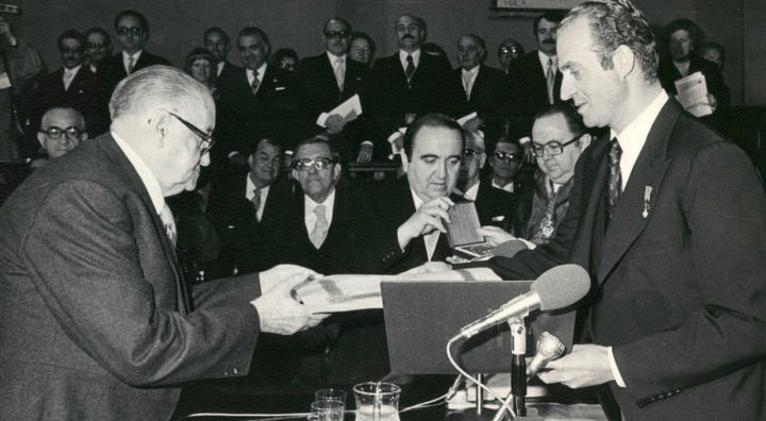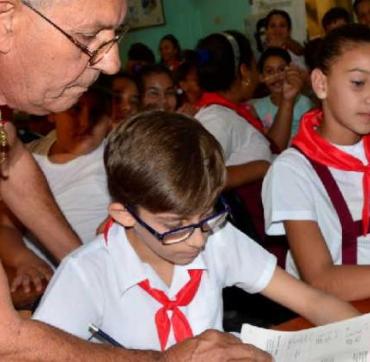One Cervantes for Carpentier
especiales

Awards do not always come in time , or are up to the worth of a work. But with Alejo Carpentier justice was done. On April 4th, 1978, the famous Cuban writer received the Cervantes Award, in a ceremony that took place in the auditorium of the University of Alcalá de Henares, in Spain.
It was the second time the award had been given —the Spanish poet Jorge Guillén had previously won it—, and the first time that it was at the hands of an author born in the Americas.
Carpentier's speech can be read today as an exquisite literary work. It’s a confirmation —another— of the essential closeness of the Cuban writer with the immense creation of Miguel de Cervantes, and his full identification with the masterpiece of the language: Don Quixote.
Carpentier said on that occasion: «Everything is already in Cervantes. Everything that will make the durability of many future novels: encyclopedism, the sense of history, social satire, caricature along with poetry and even literary criticism.
And incidentally, Carpentier refuted the "bad omen critics" who predicted the crisis of the novel: "There’s not and there won’t be crisis of the novel as long as the novel is an open novel, a novel of many, a novel with good and strong variations (. ..) on the great themes of the time, as was the exemplary novel, both local and universal, by Miguel de Cervantes Saavedra in its time».
Eight days after receiving the Award, Carpentier sent the commemorative medal and the money earned in a message to Fidel Castro: "so that he may use it as he sees fit."
The Cuban State financed with that money reproductions of universal art that were exhibited in galleries throughout the country.
In his response message, Fidel highlighted the Cuban writer's gesture: “Many decorations can fit on a man's chest. But when a man feels that true greatness cannot exist if it’s separated from the collective work to which he belongs, as you now state, he becomes worthy of the highest and most valuable of all: that of admiration, affection, the praise, and respect of his people."
Translated by Amilkal Labañino / CubaSí Translation Staff














Add new comment